“Speak out!” is the singularly most important message Professor Alex Hinton had to offer the world’s people, against the backdrop of the ongoing atrocity crimes, including genocides, being perpetrated by Israel, Myanmar’s military junta and the Arakan Army of Buddhist Rakhine, the anti-junta rebels in Western Myanmar and genocidal civil war in Sudan. In the late Spring this year, Professor Hinton sat down with FORSEA co-founder Dr Maung Zarni to share inter alia his social scientific understanding of Raphael Lemkin’s rich and multilayered conception of genocide.
Their 30-minutes conversation was filmed on the sidelines of the 1st international conference on the Cambodian genocide co-organized and co-hosted by the Prime Minister’s Office and the Documentation Center – Cambodia, a principal archival organization.
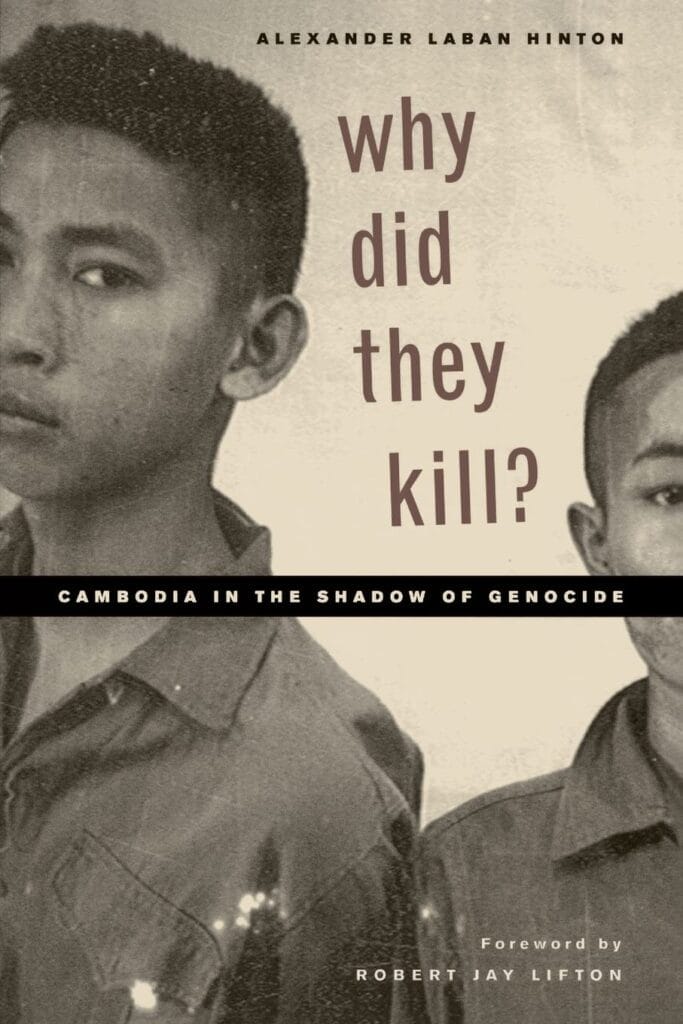
Why Did They Kill?: Cambodia in the Shadow of Genocide. Alexander Laban Hinton, 2005. Published by: University of California Press
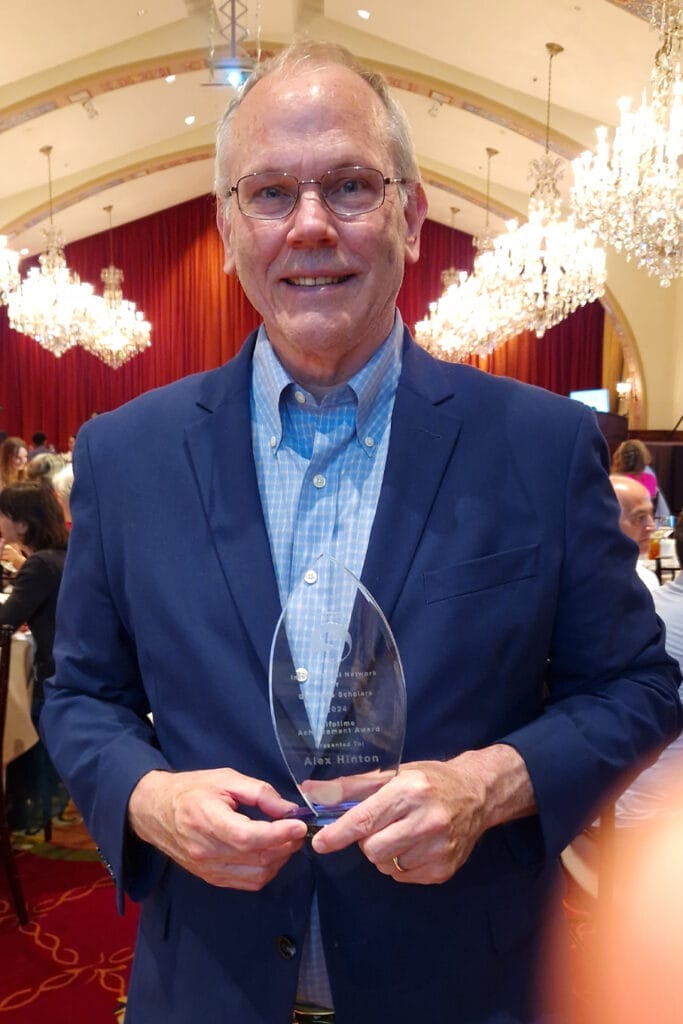
Alex Hinton received a Lifetime Achievement Award from the International Network of Genocide Scholars, at the INGS Annual Conference held at the U. Of Southern California, LA, 25 June, 2024. (Photo – Zarni)
First, Alex the scholar.
Alex Hinton is an unassuming, very down-to-earth American scholar, who has published 16 scholarly books on genocide, mass violence and racism in his long and distinguished career. He directs the Center for the Study of Genocide and Human Rights and is UNESCO Chair on genocide prevention and Distinguished Professor of Anthropology at Rutgers University Newark. (See Alex’s most recent book It Can Happen Here: White Power and the Rising Threat of Genocide in the US, NYU Press, 2022).
In 2022, he took the expert witness stand to support the prosecution’s case against Brother Number Two at the Extraordinary Chambers of the Court of Cambodia (ECCC), or better known as the Khmer Rouge Tribunal. After 13 years in operation, punishing 3 senior genocidaires at the cost of $300 million, the tribunal came to a close. The noted American genocide scholar pointed out that that the tribunal did pass a judicial judgment that Khmer Rouge regime was guilty of genocide against two specific populations of Cambodia, the native-born Vietnamese and Cham Muslim groups.
His personal background would certainly have been a significant factor in his lifelong search for understanding why the genocidaires kill. Born in Palo Alto, Norther California, Alex grew up with a psychoanalyst father who, from his couch, cast his typical psychological gaze on Alex and siblings at home, he told me over a glass of beer at the hotel in Phnom Penh where we were both accommodated as guest speakers at the said conference.
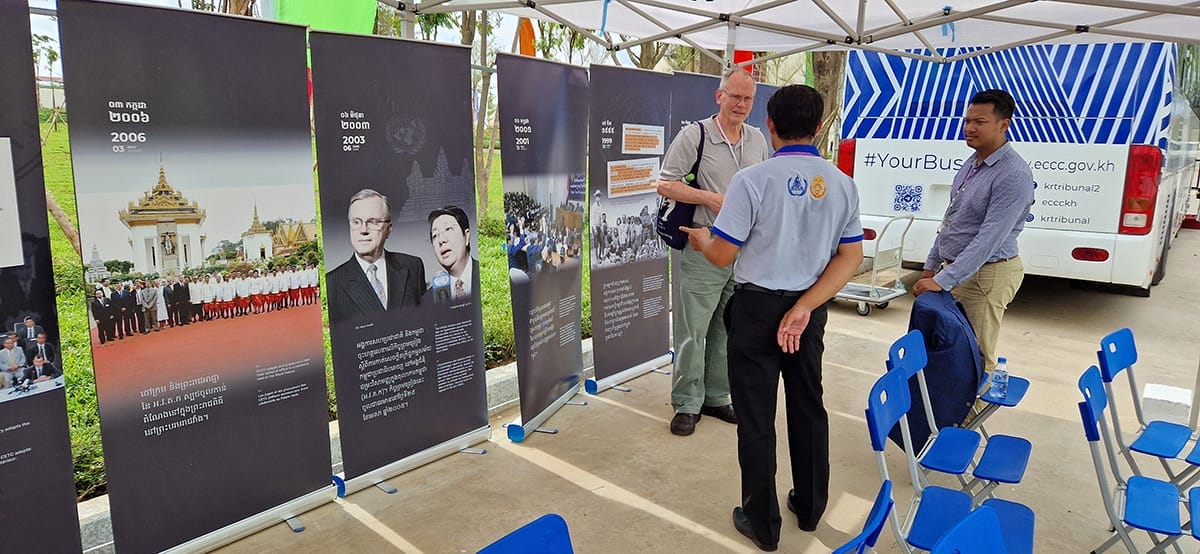
Alex Hinton at one of the genocide education exhibits. The Future of Cambodia Without Genocide conference, 20-22 May 2024. Photo, Zarni.
His responses to my probing questions were eclectically drawn on psychoanalytical insights, Buddhist perspectives and a cultural Marxian intellectual tradition closely associated with the Frankfurt School. He listed and explained “drivers of genocide” (and other forms of premeditated mass violence), while situating such acts and processes of mass atrocities in the interface between political organizations (principally “states”) and ideological systems (organized religions, included) on the hand, and the common existential angst among millions of individuals regarding their need to belong or to fill their unbearable void of Being, on the other hand.
Rather helpfully, as well, Alex differentiated the legalist’s narrow reading of genocide as encoded as the Convention on the Prevention and Punishment of the Crime of Genocide (or The Genocide Convention, in short), from Lemkin’s far-richer, original, grounded social scientific conception of genocide. He had written for the lay public on the poverty and “limits of international law”, especially as the genocide convention is widely regarded as a lamentable product of the Big Power politics which emerged after the World War II.
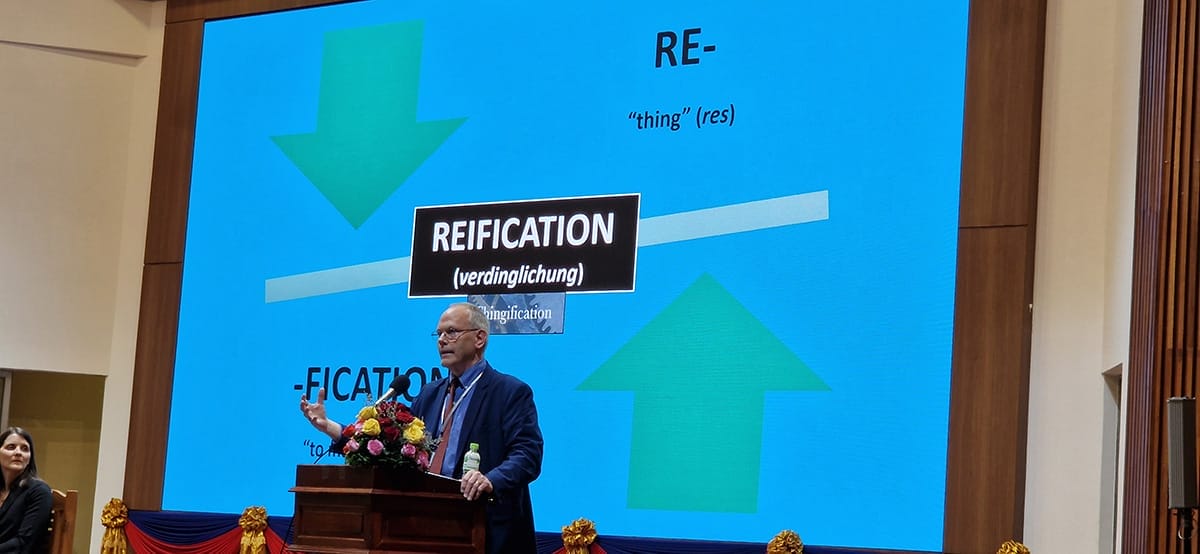
Alex Hinton delivering his talk. The Future of Cambodia Without Genocide conference, 20-22 May 2024. Photo, Zarni
To make such a weak international law even less useful, the United Nations is not equipped with any enforcing mechanisms or power, independent of the fundamentally anti-democratic character of the 5-victorious founding states, the so-called Permanent Members of the Security Council.
There have been overwhelming votes in multiple resolutions at the United Nations, both at the Security Council and in the General Assembly, in support of a free state of Palestine.
In the face of such impotence of the UN organs and the international law, the world’s moral majority, be they on the streets or in the suites of the state organs, have found absolutely pathetic, utterly offensive, vile and shrill that Israel has continued to violate international law and any civilizational norms. It is beyond mad that this vile and Nazi Germany-like criminal state is armed, financed, and protected by other previously genocidal regimes of the West (led principally by USA, UK, Germany, and most member states of the European Union).
Therefore, beyond the limits of international law, Alex’s singular message – that “we have a moral obligation to speak out (against any genocide)” – will resonate widely with the moral majority in today’s world.
Maung Zarni
Further reading: “TRT World Exclusive: Holy Redemption: Stealing Palestinian Land” (YouTube video)
MUST WATCH – Burmese scholar delivers a powerful masterclass on the reality of Palestinians under Israeli occupation. He offers a lucid and unequivocal denunciation of the “ecosystem of genocidal methodologies” employed against the Palestinians as a people, combining contextual… https://t.co/Iy5g7IAm3C
— Francesca Albanese, UN Special Rapporteur oPt (@FranceskAlbs) September 8, 2024
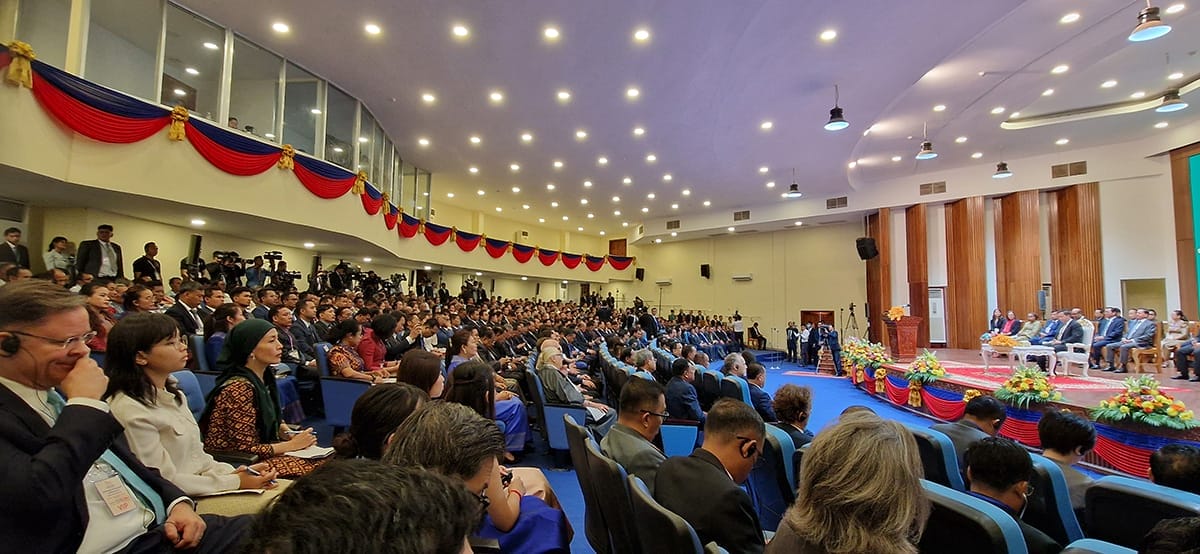
The Future of Cambodia Without Genocide conference, 20-22 May 2024.

